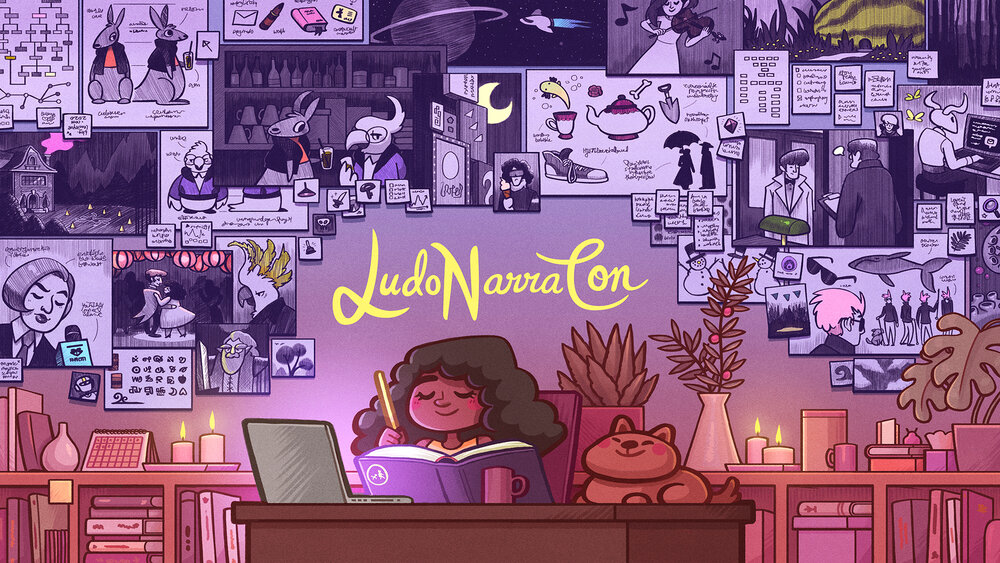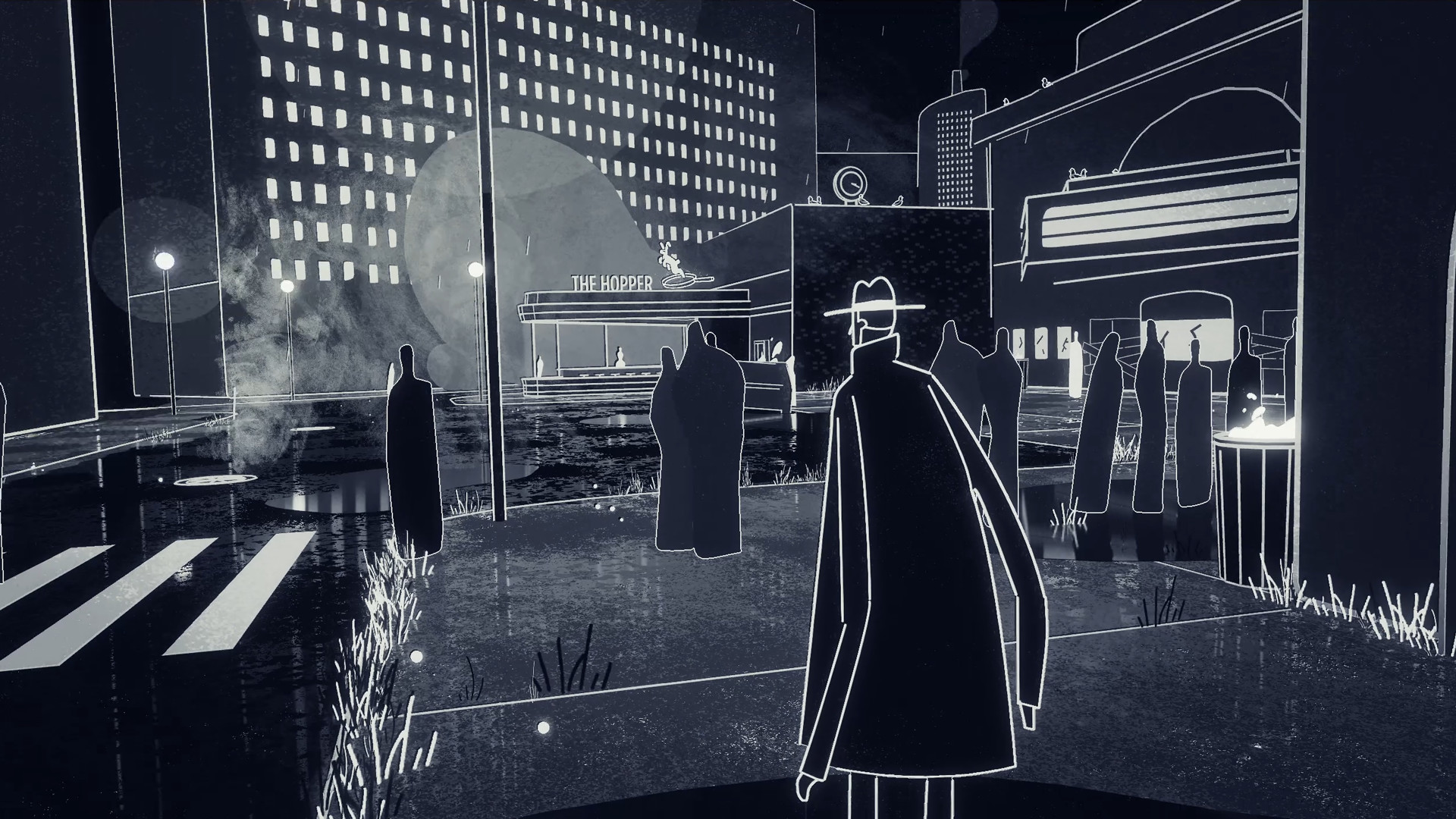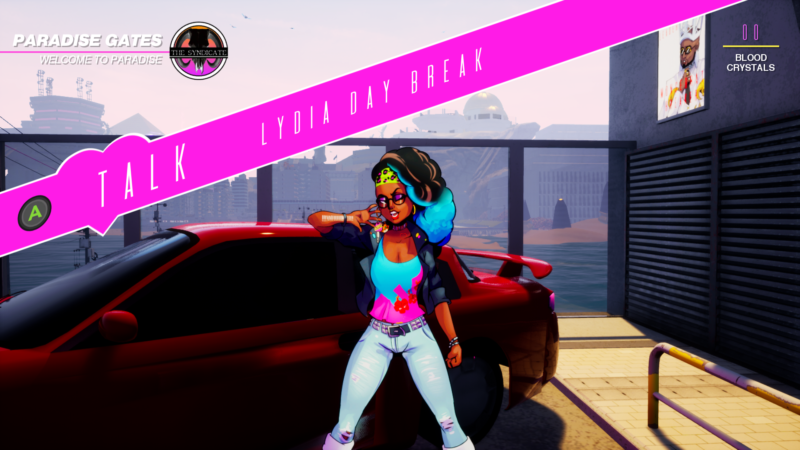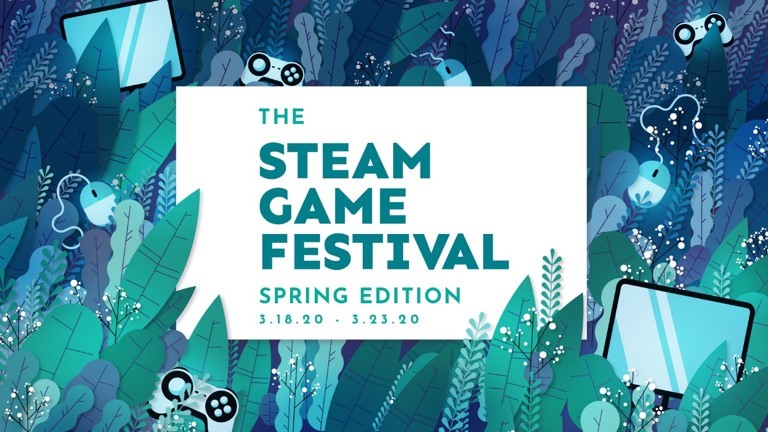LudoNarraCon is proof that the future of gaming conventions is to go digital
We chatted to Fellow Traveller's Chris Wright about how digital conventions could positively impact indie developers.

This year has been a tough year for indie developers. Despite more people playing games in self-isolation, indie developers have been massively affected by the economic fallout of COVID-19. With the cancellations of indie hotspots, like GDC, EGX Rezzed, and Gamescom, it's been a difficult time for developers to get their games in front of consumers and publishers.
With physical events being cancelled all over the world, the industry is trying to find ways to salvage their events by either postponing them or turning to digital platforms. Gamescom—Europe's biggest show—was scheduled for late August but then announced that it was 'definitely' going ahead with a digital event. Publishers are starting to figure out how and where they will announce their games either through online streams or digital press conferences.
An event that will continue to showcase its games with no chance of cancellation is LudoNarraCon. It's an online-only festival taking place through Steam that runs from April 24-27. Created by indie game publisher Fellow Traveller in 2019, LudoNarraCon is in its second year of running and managing director Chris Wright says that the team spotted the potential of digital events long before the coronavirus pandemic began.
"As a publisher, we've been going to a lot of international events since 2015," Wright says. "We spent years going to PAX East, PAX West, Gamescom, Rezzed, and other events. It was just part of what indies do, right? You get a lot out of them, but increasingly, we felt like we actually weren't getting that much value and we were spending our biggest marketing expense on these events and travelling to them.
"As we shifted towards a strong dedicated focus on narrative games a few years ago, we realized that events weren't suitable for this kind of game really, not in the same way as local multiplayer or pick up and play indie games. Narrative games need focus and attention for more than 10-minute demo. Trying to play a deeply emotional game in a noisy convention hall is not really conducive to a good experience, right? That's when we realized that we maybe didn't suit events in the same way anymore."
Full Steam Ahead
Fellow Traveller decided to create a digital festival where narrative-focused indie games could get full reception. Having a few indie games under their belt already, including surveillance thriller Orwell: Ignorance is Strength, the cyberpunk taxi sim Neo Cab, and underwater sci-fi In Other Waters, it was natural that the publishers would want to celebrate story-driven games.
As work began on how a digital event would have the same benefits as a physical one, they realised that they could do pretty much all of what they wanted to through an unlikely platform—Steam.
The biggest gaming news, reviews and hardware deals
Keep up to date with the most important stories and the best deals, as picked by the PC Gamer team.
Valve's storefront ended up being the perfect place to run a digital event. With the introduction of broadcasting, downloadable demos, and event pages, Steam became the best place to have LudoNarraCon. An indie game's store page could easily double as an exhibitor booth, allowing players to see the game, watch a livestream of the gameplay, and try the game out for themselves, with the added bonus of buying or wishlisting it all in one place.

"Steam is, weirdly, the perfect venue for this kind of event." Wright says "They hadn't designed it specifically that way, but the number of features that they've built separately over the years has made it the perfect platform for this kind of digital event."
As the hosts, it costs us a lot to put on but for the developers participating there's no charge to be part of the event
Chris Wright, Fellow Traveller Director
From a developer perspective, taking part in a digital event versus a physical one has huge economic benefits. Wright explains that with the cost of booth reservations, travel costs, food, and hotels, the amount of money spent on attending a convention can easily go into the thousands. Taking part in a digital event can save struggling indies a lot of money and Wright tells me that LudoNarraCon doesn't charge developers to take part in the showcase.
"It costs them nothing and they can participate from anywhere," Wright says "A lot of indie teams are not based in the same place so they can participate from wherever they are and do something together without having to travel. As the hosts, it costs us a lot to put on but for the developers participating there's no charge to be part of the event."
Well Travelled
With an event like LudoNarraCon having lots of benefits, many developers have taken the opportunity to be part of the event this year. It has almost doubled in size going from around 20 games in 2019 to 40 or more this year. The number of demos has increased from nine to 20, and the games taking part in the LudoNarraCon Steam sale will be in the 50-60 mark.
Chris goes on to say that another thing developers don't have to worry about with digital is the bottleneck booths can get at physical events. "There's only one developer to chat with people and only two or three demo machines. So four full days at PAX with 100,000 people coming through the show, maybe 300 people will play that demo."
There's a very limited number of people who get to actually play but with Steam, that number is vastly greater. Chris says that most games at LudoNarraCon get 30,000 to 50,000 visitors, almost the equivalent to people walking past the booth. When looking at Steam's concurrent users, it's not that surprising.
LudoNarraCon launched in May last year and looking at Steam's users back then it had a 15 million average daily peak. This year, with everyone being inside, Steam surpassed 20 million concurrent users on March 15 and has kept breaking that record since, hitting 24.5 million on April 4.

Digital events sound great for both developers, but there are some aspects that they do miss out on. Wright says that physical events let developers actually see their games getting played, and that watching your game getting played 200 times over a couple of days can be valuable to development. "One of the most valuable things about physical events is that playtesting watching people play 15 minutes of your game over and over and seeing how it works," Wright says. "So yeah, no physical events are definitely going to impact that."
There are other losses for indie teams as well, not only do you miss the fun of seeing everyone in the community, but there will be missed opportunities of getting in front of publishers and meeting press. "It's a particular loss because when you're early in your indie dev career, g to conventions is often how you first meet someone from say, Microsoft, Sony or Nintendo, who might come past the booth. You build a lot of those early connections"
It would certainly help if these companies were to start thinking about moving towards digital events and Wright thinks that they will after the events of this year. Steam has already started to do this, turning it's big blowout sales into events like the Steam Game Awards and the Spring Festival. If bigger companies began getting involved, more systems could be set in place for developers to easily meet publishers and press.

Wright hopes more gaming organisations will start to consider digital conventions as a viable outreach. As much as they would like to, it's difficult for Fellow Traveller to run more than one show a year and Wright says that it's important for the industry to come together in these trying times.
"The indie industry is really good at that," Wright says. "We've got games from Annapurna Interactive, Raw Fury, No More Robots, and a bunch of other publishers. We tend to all work together and help each other out because there's a sort-of indie philosophy that we're all in it together and we help each other out.
"The next 18 months are going to be a difficult period. So, we certainly hope to see more of these digital events and for people to build on what we've done, and find new ways to build on top of it."
Rachel had been bouncing around different gaming websites as a freelancer and staff writer for three years before settling at PC Gamer back in 2019. She mainly writes reviews, previews, and features, but on rare occasions will switch it up with news and guides. When she's not taking hundreds of screenshots of the latest indie darling, you can find her nurturing her parsnip empire in Stardew Valley and planning an axolotl uprising in Minecraft. She loves 'stop and smell the roses' games—her proudest gaming moment being the one time she kept her virtual potted plants alive for over a year.


